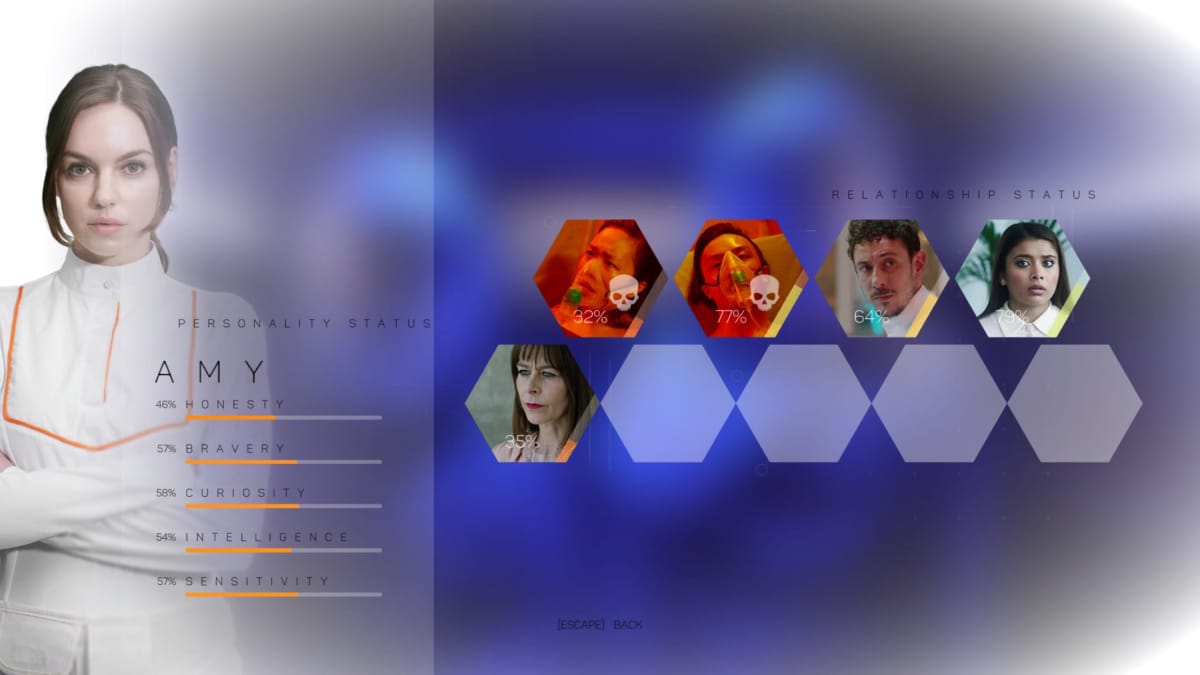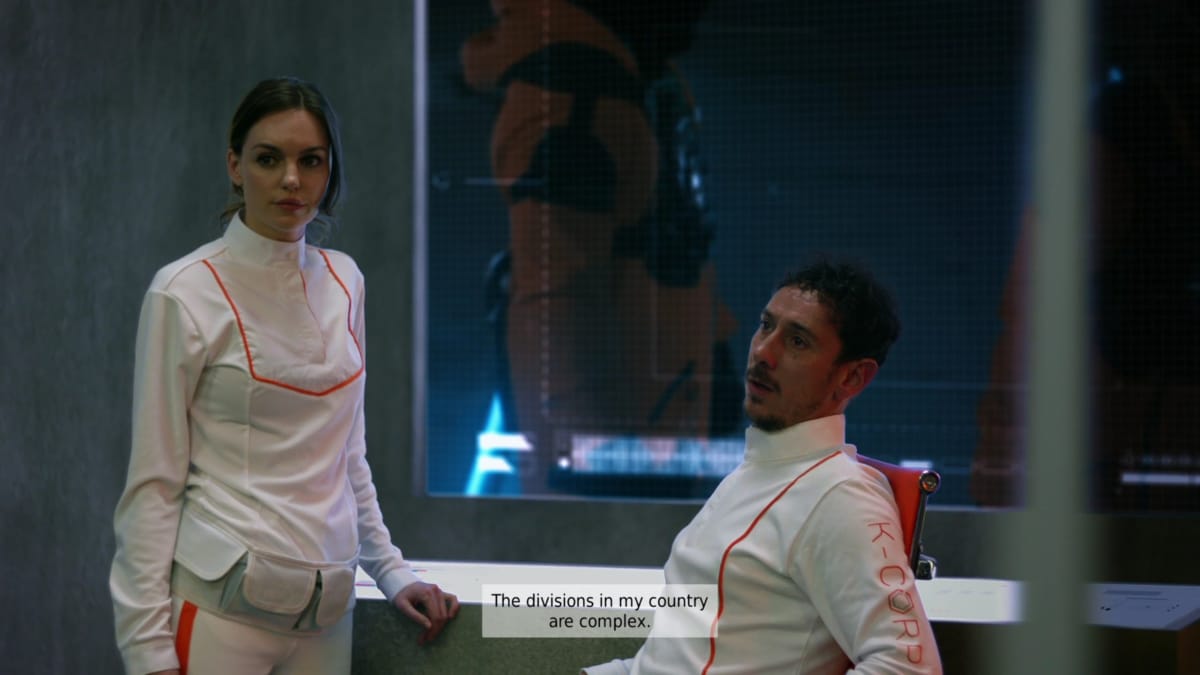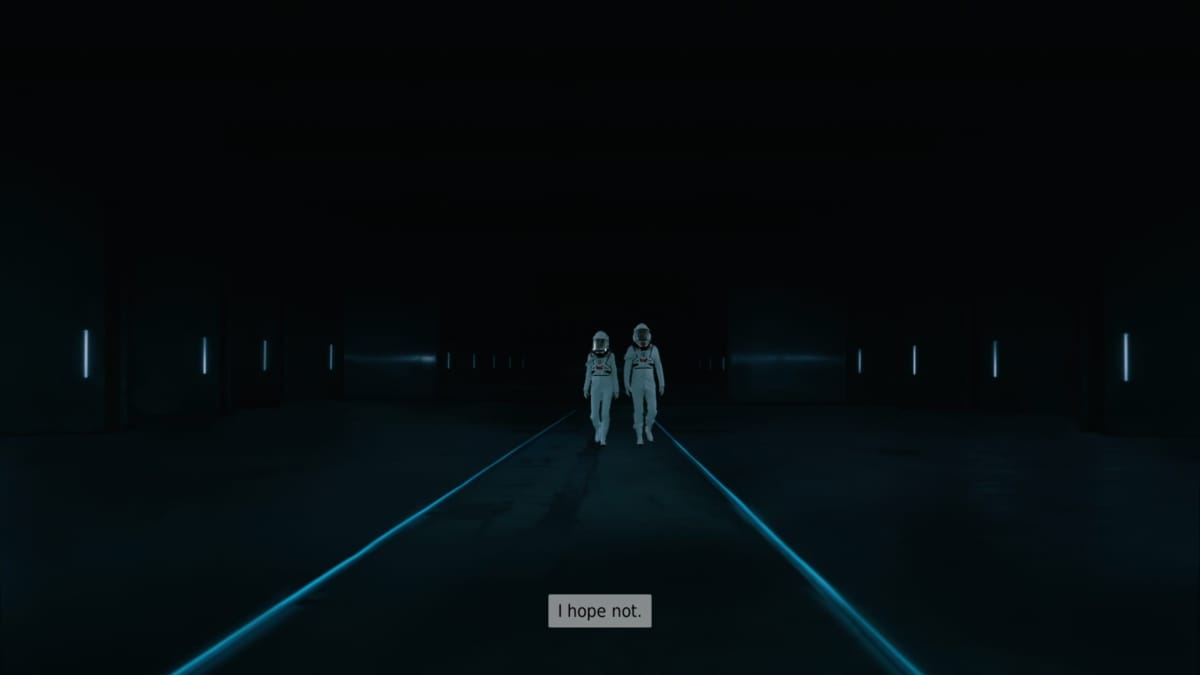When Netflix dropped Bandersnatch, a choose-your-own-adventure story playable on any TV, we were moderately entertained but less than impressed. The Complex is yet another live-action movie that ostensibly changes according to player choice, and it could not have possibly come at a worse time. The story is about a pharmaceutical research group funded by a fictional Asian country called Kindar creating a pandemic-worthy virus. The virus essentially escapes containment and the Complex, the aforementioned entity, tries to cover it up before their secret gets out.
If you are perhaps reading this in the far future, we are currently square in the middle of the coronavirus pandemic. I won't fault Wales Interactive for their subject choice as they obviously didn't know this would happen. Still, even a well-crafted game about a pandemic could be a hard sell in the middle of such a crisis. However, even disregarding the virus-related story content, The Complex leaves a lot to be desired.

The Complex Review | A Poor Emulation
There are about a dozen choices players make during a playthrough, eventually leading to one of eight endings. Pressing the pause button opens up a summary page where players can view their progress and the status of each character. The screen marks out faces if a character dies. It also shows a percentage for each face indicating the health of their relationship with main character Amy. It's clear that this kind of a stats screen attempts to emulate Supermassive Games' cult hit Until Dawn. There is, however, one key difference between Until Dawn and The Complex that the developers did not account for: The Complex is boring beyond belief.
Until Dawn has become a go-to for groups of friends to sit together in a dark room, drinks in hand, on a Saturday night and yell unreservedly at the person holding the controller what decisions to make to keep their hot, horny teens alive through the night. The Complex attempts to emulate these features to not just lackluster, but actively detrimental results.

To Choose or Not to Choose
There are nine faces belonging to "main characters," though only three of them get more than ten minutes of screen time across the two-ish hour campaign. The player controls Amy (I use the word "control" loosely here) via multiple-choice questions, akin to a Telltale game. At certain junctions, the player chooses how she should act from up to three options. This formula can work - it certainly worked better than this in Bandersnatch - but choices seem to have little to no effect on what actually happens, regardless of how Amy acts. After about 45 minutes, I restarted the game and made different decisions to see how they would impact the story. In that particular run, they didn't. Amy just did or said different things that ended with the same result. Games are sometimes accused of having an "illusion of player choice," but The Complex doesn't even provide that. The player feels very distinctly that their choices are not making a difference in the story. Wales Interactive advertises eight distinct endings, but that doesn't seem to extend to telling eight different stories.
Each choice has a five second timer, which hardly gives the player agency to make any sort of impactful decision. This is where The Complex's nature as a linear FMV truly hampers it. Real humans cannot just idle indefinitely while you make a decision, or even wait more than three or four seconds to continue a conversation without saying anything.
In Until Dawn, the real fun is in sitting in agony and pondering which of the two paths you'd like to go down. Emulating the quick decision-making of Telltale games further removes the player from the consequences of their decisions, as they aren't given time to care. There is an option in the settings to pause time while you make a decision, which the developers indicate is intended for streamers to use with live audiences. I applaud this kind of foresight at the very least; if this had been an interesting game, it would certainly make for excellent material for a livestream. Needless to say, you should use that option if you're absolutely hellbent on entering this Complex.

Not Quite a Game or a Movie
Amy is at once utterly boring and completely irrational. It is impossible at any given time to track what her motivations, goals or feelings are because she intentionally has no defined character. This was likely done on purpose to give the player a feeling of agency, similar to the voiceless bland protagonists of so many JRPGs. However, watching a living human woman stare blank-faced at the camera while she waits for your command feels awkward at best. Amy's intentional lack of personality results in failing to endear her to the player and it becomes very difficult to care about her or her conflicts. The secondary characters were so dull I forgot their names as soon as they introduced themselves.
In some cases, more impressive elements hold up a film despite bad acting. In this case, thewy only adds fuel to the already-burning dumpster fire. The story feels convoluted, relying on pretend sci-fi jargon far too often and asking the audience to pay close attention to exposition dumps every four minutes to follow the plot. The motivations of all the characters are inscrutable, the camera work is amateur at best, and even the musical score was completely out of tonal sync with the scenes it played over.

The Story is Indecipherable
This tale never fully explains its world either, so the audience will be left with a lot of questions. So many that it feels as if the writers want to leave parts of the "lore" a mystery in each run to encourage players to go back multiple times to process the whole narrative. The strategy of making it mandatory to play a game twice barely works in a masterpiece like Nier: Automata, so the idea becomes utterly laughable in reference to The Complex. The almost absent level of interactivity pushes it much farther towards being just a movie than a video game. The only gameplay comes through quick-time choices, which don't appear to affect the story in any meaningful way. The player feels entirely separated from the decisions they're making and the characters they're impacting. After finishing, most will feel that they've just lost two and a half hours of their lives. Even if you're waiting out a pandemic, there are better ways to do that.
TechRaptor played The Complex on PC via Steam using a code provided by the publisher. The game is also available on Xbox One, PlayStation 4, and Nintendo Switch.
Review Summary
Pros
- Rees is Somewhat Likeable
- Runs Smoothly, No Technical Problems
- Excellent Graphics
Cons
- Poor Acting, Writing, and Production Value
- Gains Nothing From Interactivity
- Limited Choices Don't Affect the Protagonist's Actions
Have a tip, or want to point out something we missed? Leave a Comment or e-mail us at tips@techraptor.net








